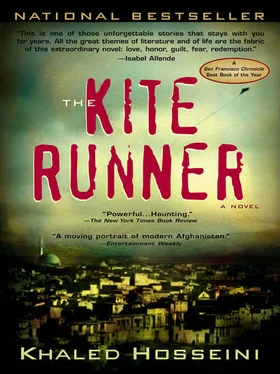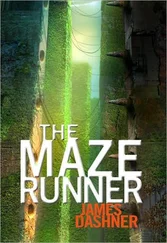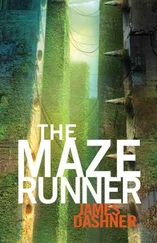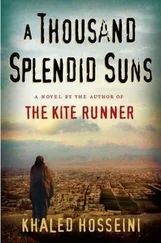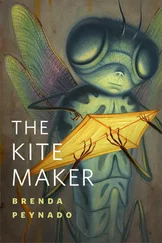At one point Baba pointed to someone. “Amir, do you see that man sitting up there with those other men around him?”
I did.
“That’s Henry Kissinger.”
“Oh,” I said. I didn’t know who Henry Kissinger was, and I might have asked. But at the moment, I watched with horror as one of the chapandaz fell off his saddle and was trampled under a score of hooves. His body was tossed and hurled in the stampede like a rag doll, finally rolling to a stop when the melee moved on. He twitched once and lay motionless, his legs bent at unnatural angles, a pool of his blood soaking through the sand.
I began to cry.
I cried all the way back home. I remember how Baba’s hands clenched around the steering wheel. Clenched and unclenched. Mostly, I will never forget Baba’s valiant efforts to conceal the disgusted look on his face as he drove in silence.
Later that night, I was passing by my father’s study when I overheard him speaking to Rahim Khan. I pressed my ear to the closed door.
“-grateful that he’s healthy,” Rahim Khan was saying.
“I know, I know. But he’s always buried in those books or shuffling around the house like he’s lost in some dream.”
“And?”
“I wasn’t like that.” Baba sounded frustrated, almost angry.
Rahim Khan laughed. “Children aren’t coloring books. You don’t get to fill them with your favorite colors.”
“I’m telling you,” Baba said, “I wasn’t like that at all, and neither were any of the kids I grew up with.”
“You know, sometimes you are the most self-centered man I know,” Rahim Khan said. He was the only person I knew who could get away with saying something like that to Baba.
“It has nothing to do with that.”
“Nay?”
“Nay.”
“Then what?”
I heard the leather of Baba’s seat creaking as he shifted on it. I closed my eyes, pressed my ear even harder against the door, wanting to hear, not wanting to hear. “Sometimes I look out this window and I see him playing on the street with the neighborhood boys. I see how they push him around, take his toys from him, give him a shove here, a whack there. And, you know, he never fights back. Never. He just… drops his head and…”
“So he’s not violent,” Rahim Khan said.
“That’s not what I mean, Rahim, and you know it,” Baba shot back. “There is something missing in that boy.”
“Yes, a mean streak.”
“Self-defense has nothing to do with meanness. You know what always happens when the neighborhood boys tease him? Hassan steps in and fends them off. I’ve seen it with my own eyes. And when they come home, I say to him, ‘How did Hassan get that scrape on his face?’ And he says, ‘He fell down.’ I’m telling you, Rahim, there is something missing in that boy.”
“You just need to let him find his way,” Rahim Khan said.
“And where is he headed?” Baba said. “A boy who won’t stand up for himself becomes a man who can’t stand up to anything.”
“As usual you’re oversimplifying.”
“I don’t think so.”
“You’re angry because you’re afraid he’ll never take over the business for you.”
“Now who’s oversimplifying?” Baba said. “Look, I know there’s a fondness between you and him and I’m happy about that. Envious, but happy. I mean that. He needs someone who… understands him, because God knows I don’t. But something about Amir troubles me in a way that I can’t express. It’s like…” I could see him searching, reaching for the right words. He lowered his voice, but I heard him anyway. “If I hadn’t seen the doctor pull him out of my wife with my own eyes, I’d never believe he’s my son.”
THE NEXT MORNING, as he was preparing my breakfast, Hassan asked if something was bothering me. I snapped at him, told him to mind his own business.
Rahim Khan had been wrong about the mean streak thing.
In 1933, the year Baba was born and the year Zahir Shah began his forty-year reign of Afghanistan, two brothers, young men from a wealthy and reputable family in Kabul, got behind the wheel of their father’s Ford roadster. High on hashish and mast on French wine, they struck and killed a Hazara husband and wife on the road to Paghman. The police brought the somewhat contrite young men and the dead couple’s five-year-old orphan boy before my grandfather, who was a highly regarded judge and a man of impeccable reputation. After hearing the brothers’ account and their father’s plea for mercy, my grandfather ordered the two young men to go to Kandahar at once and enlist in the army for one year – this despite the fact that their family had somehow managed to obtain them exemptions from the draft. Their father argued, but not too vehemently, and in the end, everyone agreed that the punishment had been perhaps harsh but fair. As for the orphan, my grandfather adopted him into his own household, and told the other servants to tutor him, but to be kind to him. That boy was Ali.
Ali and Baba grew up together as childhood playmates – at least until polio crippled Ali’s leg – just like Hassan and I grew up a generation later. Baba was always telling us about the mischief he and Ali used to cause, and Ali would shake his head and say, “But, Agha sahib, tell them who was the architect of the mischief and who the poor laborer?” Baba would laugh and throw his arm around Ali.
But in none of his stories did Baba ever refer to Ali as his friend.
The curious thing was, I never thought of Hassan and me as friends either. Not in the usual sense, anyhow. Never mind that we taught each other to ride a bicycle with no hands, or to build a fully functional homemade camera out of a cardboard box. Never mind that we spent entire winters flying kites, running kites. Never mind that to me, the face of Afghanistan is that of a boy with a thin-boned frame, a shaved head, and low-set ears, a boy with a Chinese doll face perpetually lit by a harelipped smile.
Never mind any of those things. Because history isn’t easy to overcome. Neither is religion. In the end, I was a Pashtun and he was a Hazara, I was Sunni and he was Shi’a, and nothing was ever going to change that. Nothing.
But we were kids who had learned to crawl together, and no history, ethnicity, society, or religion was going to change that either. I spent most of the first twelve years of my life playing with Hassan. Sometimes, my entire childhood seems like one long lazy summer day with Hassan, chasing each other between tangles of trees in my father’s yard, playing hide-and-seek, cops and robbers, cowboys and Indians, insect torture – with our crowning achievement undeniably the time we plucked the stinger off a bee and tied a string around the poor thing to yank it back every time it took flight.
We chased the Kochi , the nomads who passed through Kabul on their way to the mountains of the north. We would hear their caravans approaching our neighborhood, the mewling of their sheep, the baa ing of their goats, the jingle of bells around their camels’ necks. We’d run outside to watch the caravan plod through our street, men with dusty, weather-beaten faces and women dressed in long, colorful shawls, beads, and silver bracelets around their wrists and ankles. We hurled pebbles at their goats. We squirted water on their mules. I’d make Hassan sit on the Wall of Ailing Corn and fire pebbles with his slingshot at the camels’ rears.
We saw our first Western together, Rio Bravo with John Wayne, at the Cinema Park, across the street from my favorite bookstore. I remember begging Baba to take us to Iran so we could meet John Wayne. Baba burst out in gales of his deep-throated laughter – a sound not unlike a truck engine revving up – and, when he could talk again, explained to us the concept of voice dubbing. Hassan and I were stunned. Dazed. John Wayne didn’t really speak Farsi and he wasn’t Iranian! He was American, just like the friendly, longhaired men and women we always saw hanging around in Kabul, dressed in their tattered, brightly colored shirts. We saw Rio Bravo three times, but we saw our favorite Western, The Magnificent Seven , thirteen times. With each viewing, we cried at the end when the Mexican kids buried Charles Bronson – who, as it turned out, wasn’t Iranian either.
Читать дальше
